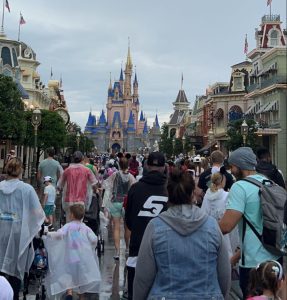What Your Instagram Says About You
December 16, 2019
As most teens my age do, I have social media, like a lot of social media. I have an account on literally almost anything; Instagram, Tumblr, Twitter, TikTok, Snapchat, Facebook, Pinterest, Reddit, and probably some more that I can’t think of off the top of my head. There’s so many different ways to connect to other people, both online and in real life, it’s too easy to skim over the huge presence they have in our lives.
Something interesting that I’ve come across recently is an article that shows what kind of mood a person can be in when they post something on social media. Regardless of whether or not this is true, the article stated a lot of interesting ideas on what certain types of photos could mean. If you post a lot of photos of yourself, than you’re looking for validation; if you post a lot of black and white pictures, than you could be a little depressed; if you most memes, that could either mean that you’re trying to hide how you really feel or you’re just humorous; and so on and so forth.
But a question that’s recently come across into my peripheral is whether or not social media has anything to do with how we present ourselves online. Do we show the same side of ourselves we show to others? Do we stay confined with what we know in our own lives that we just don’t pay attention to others? Do we communicate any differently with people online than in real life?
So of course, I did a little research. According to a research project of freshman college students done by Chia-chen Yang — from the University of Memphis — and B. Bradford Brown — from the University of Wisconsin-Madison — it was concluded that “online self-presentation changes across an important developmental transition.” Adolescence is a very rocky time for a lot of teenagers, because it’s the age where we truly have to find who we are, as individuals from the other people around us. The article goes on to say that online self-presentation is more reflective upon the person themselves, and “although self-reflection is related to lower contemporaneous self-concept clarity, it boosts the presenter’s self-esteem in the long run.” Everyone experiences a different form of how they present themselves to others, especially online, but it’s important to understand that social media provides a platform for others to get an impression of who we are, making it a great outlet of energy and a way for us to express ourselves to other people.
So yeah, social media has it’s pros and cons, but the real question: does self-presentation effect anyone we know right now? Having the answer stated in an academic journal tends to make it seem a little out of our social bubble, but turns out, a lot of the same ideas can be applied to some of our own Chatfield students.
Bridget Gwyn, from the class of 2020, said that social media has impacted her in a positive way, broadening her horizon of the world, as well as help inform her of important news that she probably wouldn’t have heard about otherwise. The only negative impact she has felt from the internet is that it’s created an unrealistic expectation for herself. “It’s why I think there should be an age limit to when kids can start having social media, because everyone fakes their life online, to a certain degree.” Seeing everyone live these interesting lives really can take a toll on how we view the world. According to this other article from the University of Gothenburg, in Sweden, adolescent people that see any particular weight related post then have the stigma to reduce all weight related posts about themselves. Gwyn then goes on to say that “I obviously show my best face online, but I treat it more as a journal entry.” Her Instagram account is filled with tons of pictures of scenery and landscapes, with there being a mix of dedication posts to friends and/or family members along the way. “I do try to post my realistic self,” she elaborates, “but not my worst self.”
On the other hand, Brody Vollert, also from the class of 2020, is almost the complete opposite. While Vollert does believe that the Internet has helped shape his perspective on other things happening in the world, he thinks that the biggest thing social media has done for him is help to extend his ability of communication with other people. It’s a great place for him to talk to people from “like, everywhere.” On social media, there are no boundaries. Vollert continues with, “I can talk to a whole bunch of different people from different countries, with different sexualities, races, genders, and ideas.” In other words, the impact is still there. “Seeing cool things online, like dope stuff, make me pretty interested, and sometimes even enough to look into it.” Vollert when asked if anything he sees online affects how he interacts with other people online. “I’m not really that different online than I am offline,” he says. “How I interact with people online doesn’t really change when I interact with them in real life… because I’m comfortable with who I am.”
Overall conclusion: well it seems that the effect that social media is different for everybody, but the main thing to take note of is that the good aspects of social media has had on who we are have been for the better. Social media isn’t meant to be a scary place where you can’t help but change who you are, even if it’s just online; rather it’s all about the connectivity it promotes. No matter who we are online or offline, the most important thing is to be true to who we are.






